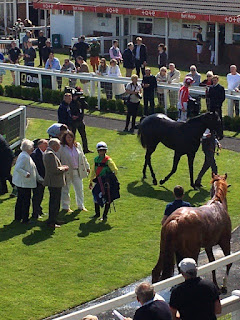Trainers play a vital role in the preparation, guidance, and support of horses during a national hunt race. Their responsibilities extend beyond the training phase and encompass various aspects before, during, and after the race. Here's an overview of the trainer's role during a national hunt race:
Pre-Race Preparation: Trainers carefully analyze the race conditions, course layout, and competition to determine the suitability of their horse's participation. They assess the horse's form, fitness, and well-being to make an informed decision regarding entry. Trainers also collaborate with jockeys to discuss race tactics, including pace, positioning, and strategy.
Final Training: In the days leading up to the race, trainers oversee the final training sessions. They monitor the horse's fitness levels, adjust the workload accordingly, and fine-tune specific skills required for the race, such as jumping technique and speed work. Trainers ensure that the horse is in peak condition on race day.
Race Day Preparation: On the day of the race, trainers oversee the final preparations. They coordinate the arrival of the horse at the racecourse, supervise the saddling process, and ensure all necessary equipment is in place. Trainers also provide guidance and reassurance to the jockey, discussing any last-minute instructions or adjustments based on track conditions.
Paddock Assessment: Trainers play a critical role in assessing their horse's physical and mental state in the paddock. They closely observe the horse's behavior, assess its fitness, and check for any signs of discomfort or stress. Trainers communicate with the jockey, providing valuable insights and instructions based on their observations.
In-Race Guidance: During the race, trainers closely follow their horse's performance. They analyze the race dynamics, monitor the horse's position in the field, and evaluate the effectiveness of race tactics. Trainers may communicate with the jockey via radio or signals to provide real-time guidance and adjustments, such as encouraging the horse or advising a change in strategy.
Post-Race Assessment: After the race, trainers evaluate their horse's performance and well-being. They assess factors that contributed to the outcome, such as track conditions, jockey performance, or any issues encountered during the race. Trainers provide feedback to the jockey and discuss improvements or adjustments for future races. They also oversee the horse's post-race recovery, ensuring appropriate cooling down, hydration, and veterinary care if necessary.
Ongoing Training and Development: Trainers continuously monitor their horse's progress and adjust training programs accordingly. They identify areas for improvement, address weaknesses, and provide specialized training to enhance the horse's skills and performance in future races. Trainers also collaborate with the horse's owners, discussing race plans, long-term goals, and potential race entries.
Overall, trainers serve as the primary guides and strategists for the horse during a national hunt race. Their expertise, knowledge, and attention to detail are essential in maximizing the horse's potential and ensuring a safe and competitive performance.
Photo: Jason Coote

No comments:
Post a Comment
Thanks for your comment.